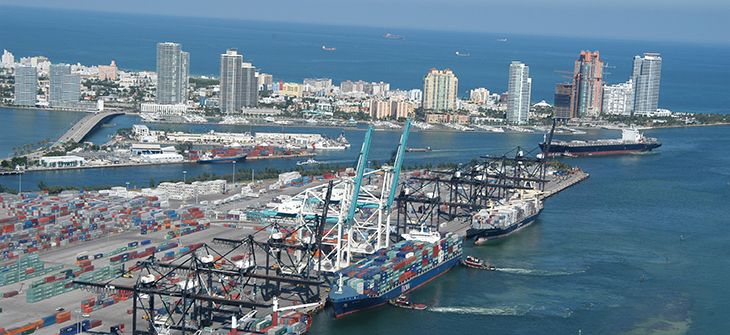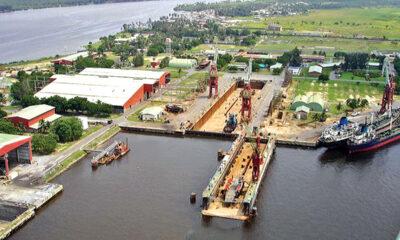The total works presently carried out on the Lekki Deep Seaport Project in Lagos have amounted to 80 percent of the completion stage. The proposed world-class seaport has been scheduled to begin port operations by the end of 2022.
This was revealed during the inspection of the port project construction on Saturday, by the Minister of Transportation, Chibuike Amaechi.
Speaking on the progress of the project, Amaechi stated that in less than five months, a lot of civil work had been done.
He commended the contractors for the work done so far while urging them to speed up the work.
“I want to congratulate you for the very huge progress. By the time we came here, there were no civil works; it was just pure sand. You have tried.
“I am suggesting that if you work day and night you will go far and complete the work before commissioning. If the President sees it, approval will be easier,” Amaechi said.
The minister further stated that prompt completion of the project will enable the government to approve all the necessary processes before the next election, adding that six months into the election, government officials would get busy with politics and would be hardly met in their offices.
He advised that more machines should be deployed to the port to aid output and reduce physical contact.
Also speaking, the Chief Technical Officer of Lekki Port, Steven Heukelom, stated that the ongoing project construction was in place as scheduled.
Heukelom explained that the port dredging and reclamation works had attained 89.93 per cent of completion, Quay Wall 85.65 per cent, Breakwater 79.66 per cent, and the landside infrastructure development 67.82 per cent; all amounting to 80 per cent completion stage approximately.
He mentioned that work had begun on the marine services jetty, which would be used by the Nigerian Ports Authority, NPA for marine services.
He appreciated the Acting Managing Director, Mohammed Bello-Koko for his support and preparations for the seaport operations to kick-start.
Bello-Koko, however, revealed that the NPA has made provision for tug boats and other infrastructure for the smooth operation of the Lekki deep seaport.
Investors King gathered that Tolaram and China Harbour Engineering Company is in charge of the Lekki seaport construction while the Lagos State Government and Nigerian Ports Authority are shareholders in the project company.
The Chief Operating Officer of Lekki Port, Laurence Smith, noted that the company is working tirelessly to deliver the project by the fourth quarter of 2022.
Smith affirmed that after completion, the Lekki seaport would be a world-class port and would be a regional distribution and transhipment hub for the African continent.

 Forex2 weeks ago
Forex2 weeks ago


 Naira2 weeks ago
Naira2 weeks ago
 Billionaire Watch2 weeks ago
Billionaire Watch2 weeks ago




 Naira2 weeks ago
Naira2 weeks ago




 Naira2 weeks ago
Naira2 weeks ago




 Naira4 weeks ago
Naira4 weeks ago


 Naira6 days ago
Naira6 days ago
 Banking Sector4 weeks ago
Banking Sector4 weeks ago
















